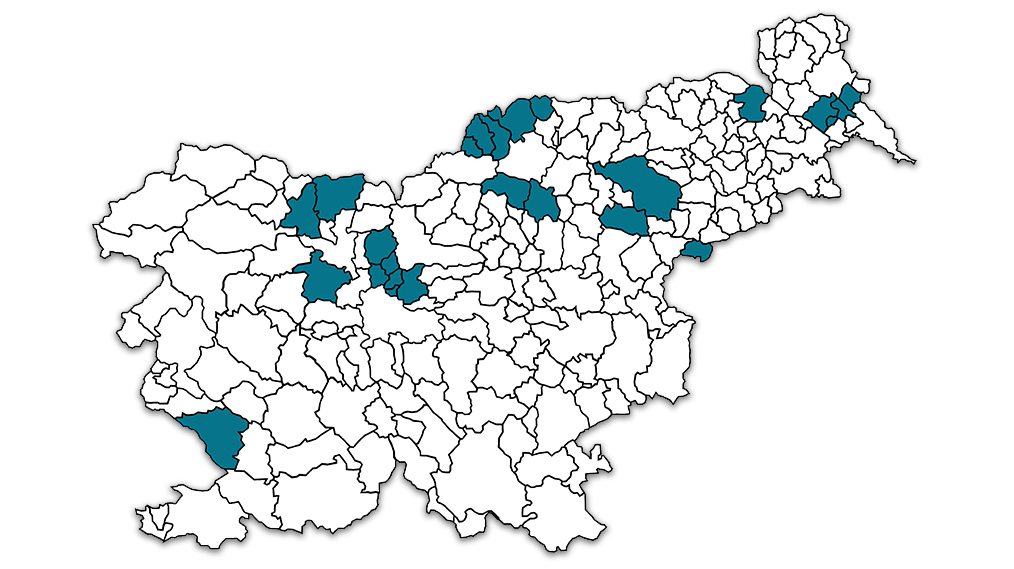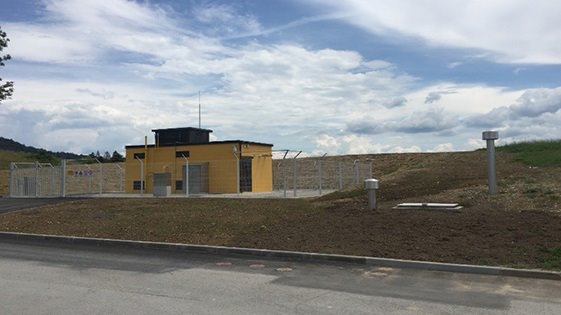Distribution systems for natural gas
Petrol provides the compulsory commercial public service of gas pipeline network roll-out. Choose a cleaner, turnkey fuel that reduces heating costs, increases comfort and improves the air quality in your city.
CONTACT US REFERENCESNatural gas is an affordable, versatile and clean energy source. Its distribution consists of the transport of natural gas through local or regional gas networks for the purpose of supplying customers. As natural gas travels through the pipelines underground, its use relieves the road network, reduces the possibility of spills and consequently reduces the threat to groundwater and other water sources.
The Petrol Group has been engaged in the construction of gas pipelines since 1993. Currently, in Slovenia, Petrol operates 1,195 km of natural gas networks and 29 gas distribution concessions in public-private partnership. We distribute natural gas in two countries, Slovenia and Serbia.
| Length of networks | Number of connections | Number of clients |
| 1,145 km | 19,078 | 15,379 |

Compulsory public utility service of gas pipeline network roll-out
In Slovenia, natural gas is used by more than 100,000 households for heating, cooling and cooking. Cities can decide to transfer the distribution of natural gas to a private concession partner or a partner operating under the contractual model of a public-private partnership.
Petrol is chosen for its:
- Optimal implementation of the entire investment, from planning and construction to management.
- Assumption of economic risk.
- Inexpensive and high-quality network construction (construction according to running meter in four categories of surfaces: road, sidewalk and bicycle path, gravel and grassland).
- Precise control (control of the gas pipeline with a bed, gas strip, precise welding of pipes with clamps of proven quality or front welding exclusively with tested welders: 24/7 field services).
- Inexpensive and high-quality gas pipe supply (PEHD plastics).
- Low operating and overhead costs (field work is carried out by external field services and surveyors).
- Low maintenance costs due to quality construction.
- Economic feasibility of construction in smaller areas with a low population density and a lower concentration of customers.
Benefits of the public-private partnership of gas pipeline roll-out
The distribution of natural gas by a private partner under the contractual model of concession enables local communities to:
- Supervise and manage the distribution network operation.
- Ensure the maintenance and development of gas distribution networks and network access
- Ensure the long-term capacity and reliability of the network to meet reasonable requirements for connection and access to the network.
- Implement non-discriminatory treatment of network users.
- Forecast the consumption of natural gas by using the integrated planning method, taking into account savings measures for consumers for the purposes of planning the distribution network development.
- Provide the necessary data to other system operators and eligible customers, from networks which the network it manages is linked to.
- Provide system services and issue and implement system operating instructions.
- Manage the flow of natural gas through the distribution network, taking into account the exchange of energy with other connected networks.
- Implement the optimal post-disruption system and coordinate the operation of the distribution network with connected networks.
- Implement the systemic protection of the distribution network.
- Implement metering and operational measurements in the distribution network and measurements and analyses of the quality of natural gas supply.
- Design operational statistics.
- Execute emergency care.
After awarding the concession
After obtaining the building permit, a gas pipeline is built, with all the relevant connections. Furthermore, the private partner also provides for the implementation of an internal gas installation.
Once the connection is implemented, it is followed by the issuing of consent and the use permit, and by the installing of equipment and the electrical installation test and pressure probes. The concession granted for natural gas is 35 years.
Easy transition from liquified petroleum gas
Liquified petroleum gas or LPG is a precursor to natural gas in areas where the gas pipeline network for natural gas is to be rolled out. The transition from LPG to natural gas does not foresee significant investment costs and is very easy.
| Advantages of natural gas | Advantages of liquified petroleum gas |
| Lower price | Use in areas where there is no gas network yet |
| Efficiency due to high fuel yields | Use in areas where there is no gas network yet |
| Safety, because there is no need for a tank | Customers are not network-linked, as gas is stored in tanks near the building |
| Transport without disturbance | Transport without disturbance |
| Environmental protection | Environmental protection |
| Energy efficiency | Energy efficiency |

